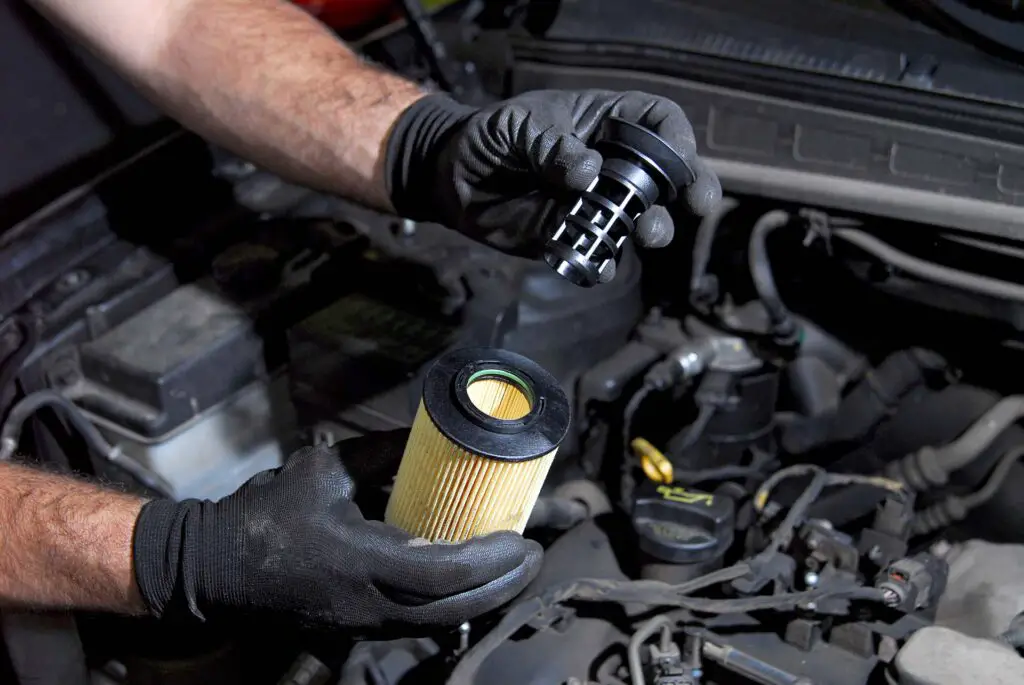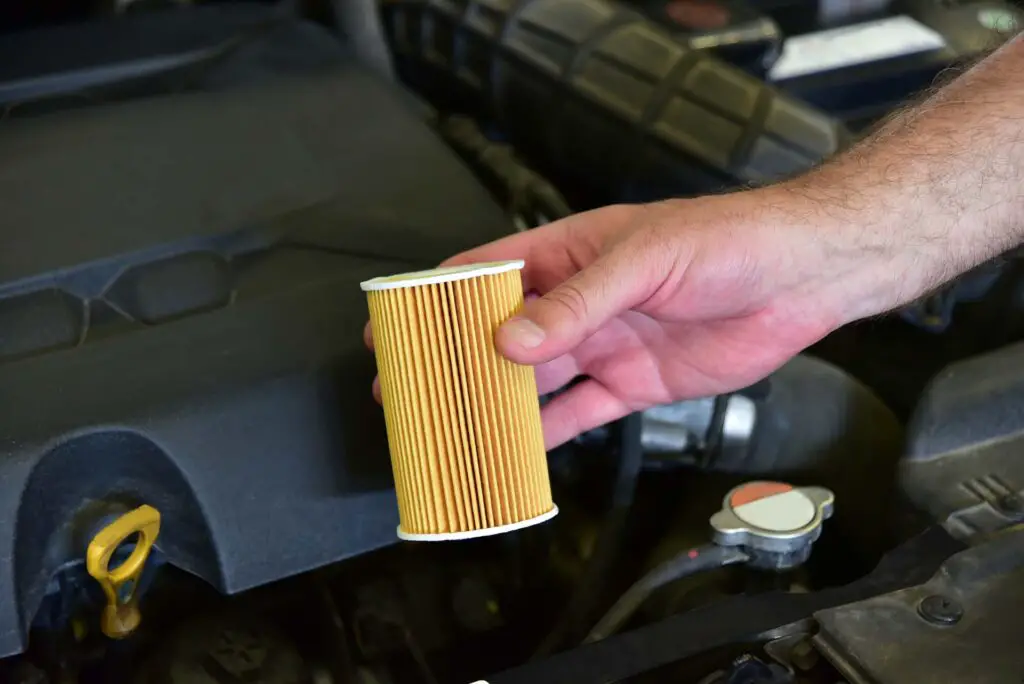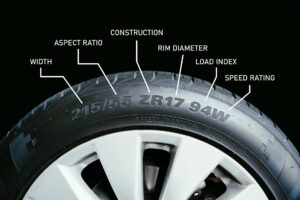There comes a time when every driver wonders – how much does an oil filter cost? It’s no wonder, as this seemingly small part of vehicle maintenance plays a big role in keeping your car’s engine purring like a kitten. Let’s dive under the hood and uncover the real expense of this routine visit to the mechanic shop.
How Much Does an Oil Filter Cost Typically?
The cost of an oil filter change depends on what you’re working with under the hood. For those cruising with conventional motor lubricant, expect to shell out between $35 and $75. But if you’re rolling with the more refined synthetic formula, the price tag jumps to around $65 to $125.
Filtering the Facts – Why Are Oil Filters Important for Vehicle Maintenance?
Whether you’re driving one of the most expensive cars in the world or a simple used vehicle, this vital component under the hood is designed to trap and remove contaminants. The filter ensures that the lubricant remains clean, which is essential for engine health. Here’s what these crucial automotive parts do exactly:
- It acts as a barrier, capturing dirt, debris, and metal fragments that could otherwise circulate and cause damage,
- By preventing contaminants from causing abrasion, it plays a critical role in engine protection and extending its lifespan,
- Cleaner lubricant leads to cleaner engine operation, which in turn leads to more efficient performance and reduced exhaust emissions.
How Often Should Your Four-Wheeler Undergo This Routine Swap?
Filter quality is key to keeping your prized ride in top shape. The general rule is to replace it with every oil change. For petrol-driven vehicles, this is typically every 6,000 miles, while diesel-powered cars might stretch it to every 9,000 miles. But remember, each ride is unique. For the most accurate interval, it’s always best to consult your vehicle’s manufacturer handbook.
What Are the Consequences of Ignoring This Maintenance Task?
Firstly, the build-up of contaminants can lead to increased wear and tear inside the engine bay. Over time, this can significantly shorten the life of your vehicle’s key components, which can turn into expensive repairs down the road. But complete failure doesn’t only result in a hefty bill at the shop – it can also put your safety at risk. So, a little bit of engine damage prevention now can be a literal lifesaver after a few thousand miles.

No Unpleasant Surprises at the Shop – What Factors Affect Oil Filter Pricing?
It’s easy to get lost in the sea of price tags when you’re trying to figure out the question – how much does an oil filter change cost exactly? Sure, it generally costs between $35 to $75 for conventional motor lubricant and $65 to $125 for synthetic.
But hey, that’s just the tip of the iceberg. A bunch of other factors can swing that price needle. Let’s break down what actually goes into determining that final bill:
Type of Vehicle
Not all vehicles are created equal, and neither are their filters. The type of vehicle you drive plays a big part in determining what kind of filter you need. A compact city car won’t have the same requirements as a heavy-duty truck. Luxury vehicles might need high-performance filters that can handle their advanced systems.
Quality of the Filter
The cost can also vary based on the filter’s quality and brand. On one end of the spectrum, you have budget-friendly options like the DIINGO OEM Toyota Oil Filter that does the job without breaking the bank. On the other hand, you might opt for something more premium such as the Mopar Diesel Filter Set, known for its superior filtration capabilities.
Oil Filter Materials and Technology
The nuts and bolts matter too – literally! The materials and technology used in a filter’s construction can significantly impact its cost. Some of them use advanced synthetic materials or incorporate cutting-edge filtration technology to offer superior performance. These high-tech options usually come with a higher price tag.
Including Engine Oil Swap
As we mentioned earlier, the general rule of thumb is to change your filter when you change your engine lubricant. Naturally, combining these two services can affect the overall price. So, keep that in mind the next time you’re pondering the question – how much does an oil and filter change cost?
The Specific Auto Shop
Finally, where you get this task done can make a big difference in the price. Each auto shop has its own pricing strategy, labor rates, and parts markup. And hey, if you’re a bit of a DIY enthusiast, taking on this task yourself could save some bucks. But remember, professional oil filter installation is the way to go in certain instances.
Professional vs. DIY Oil Filter Replacement – What’s the Real Deal?
So, you’re at a crossroads – to entrust your prized ride to the pros or dive into the world of DIY for your next replacement? It’s a bit like deciding whether to cook dinner or just order takeout. Both have their perks, but what’s really the best bang for your buck and time? Let’s explore both lanes to help you make an informed decision.
How to Change the Oil Filter by Yourself
Feeling handy and thinking about tackling this task yourself? It’s the golden ticket to budget-friendly car care and getting to know your four-wheeler a bit better. To fully understand if you can go through with it, here’s a step-by-step guide:
- Gather the new filter, the right grade of lubricant, a wrench, a drain pan, and some safety equipment,
- Run your car for a few minutes, because warm lubricant will drain faster,
- Consult your car’s manual to locate this component,
- Place the drain pan under it and remove the plug, letting the lubricant drain out completely,
- Use a wrench to loosen and remove the old component,
- Lubricate the new filter’s gasket and screw it in place by hand,
- Once it’s in place, refill the engine with the new lubricant,
- Start your engine and let it run for a minute, checking for any leaks around the component in question,
- Remember to properly dispose of the old lubricant at a recycling center.
The Benefits of Using Professional Auto Shop Services
Opting for a professional auto shop comes with its fair share of advantages. First off, you get the expertise of seasoned mechanics. These guys have been under more hoods than you can imagine. They know their way around different models and can spot issues you might miss.
Then, there’s the equipment. Professional shops are decked out with all the tools and diagnostic gear needed for a precise job. This means they can handle complications that might leave DIYers scratching their heads. Not to mention, many shops offer warranties for their work. If something goes awry post-service, you’re covered. It’s a peace-of-mind thing that’s hard to put a price tag on.

Cost-Effective Vehicle Care Isn’t Always About Finding Temporary Budget Solutions
In the world of automotive maintenance costs, sometimes spending a bit more upfront can save you a bundle down the road. In essence, when it comes to engine damage prevention, investing a little extra in quality now can mean fewer headaches and less expense down the road.
Here Are Some Savvy Money-Saving Tips to Help You for Miles to Come
While saving money on vehicle maintenance is essential, it’s also crucial to do it wisely. Here are some tips to help you balance cost-effectiveness with smart care:
- Have regular check-ups to catch potential issues early, as this can save a lot of money in the long run,
- Investing in quality parts, like high-grade filters, can extend the life of your vehicle and save money on frequent replacements,
- Compare prices and reviews of different auto shops or online automotive retailers for the best deal and service,
- Sometimes, aftermarket parts offer the same quality as OEM (Original Equipment Manufacturer) parts but at a lower price,
- Be on the lookout for those oil filter discounts, as there are plenty of them on the market.

Now You’re in the Driver’s Seat, Cruising Towards Smart Choices for Your Prized Ride
As we roll to a stop on our journey, it’s clear that the right choices can make a huge difference. We’ve explored the importance of this humble but crucial component, the variables that impact its price, and the trade-offs between professional servicing and DIY approaches. Now, it’s up to you to find what maintenance road fits your specific needs best. Remember, being in the driver’s seat of your car’s care isn’t just about handling the wheel – it’s about making informed decisions under the hood.
Frequently Asked Questions About Oil Filter Cost
Can Using the Wrong Type of Oil Filter Affect My Car’s Performance?
Absolutely. Using an incorrect filter can lead to inadequate filtration or even oil leaks, both of which can negatively impact your engine’s performance and longevity. Always ensure you’re using the right filter for your specific vehicle model.
How Can I Tell if My Oil Filter Needs Replacing?
Signs that your filter needs replacing include a decrease in engine performance, unusual engine noises, or the oil pressure warning light on your dashboard. If in doubt, it’s always best to consult with a professional mechanic.
Is It Safe to Use Aftermarket Oil Filters Instead of OEM Ones?
Yes, it can be safe to use aftermarket filters. Many aftermarket options meet or even exceed OEM specifications. However, it’s crucial to choose a reputable brand to ensure the quality and compatibility with your vehicle.
Do Oil Filters Affect Fuel Efficiency?
Indirectly, yes. A clogged or inefficient oil filter can lead to poor engine performance, which can decrease fuel efficiency. Keeping this automotive component in good condition helps maintain engine efficiency and, consequently, fuel economy.
Can a Dirty Oil Filter Cause My Car to Overheat?
While a dirty filter alone is unlikely to cause overheating, it can contribute to it. A clogged filter can restrict oil flow, leading to increased friction and heat within the engine, which may contribute to overheating problems. Regular replacement is key to preventing such issues.








